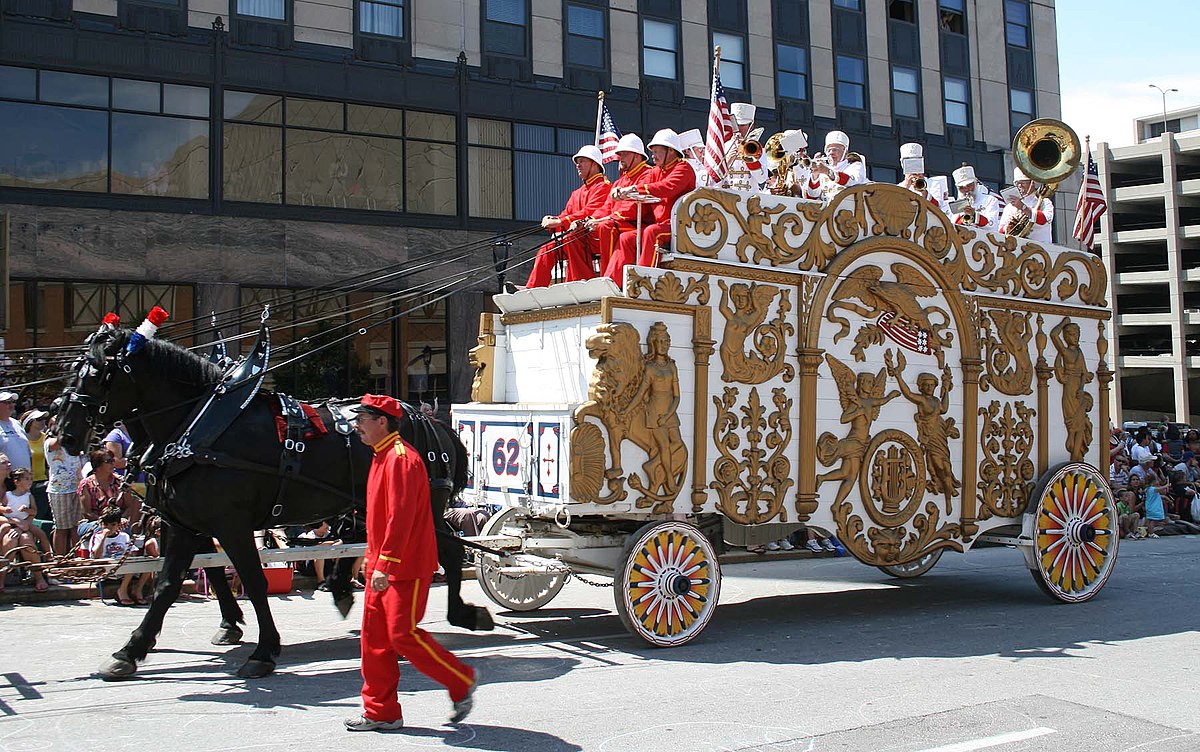第286期:bandwagon
今天我们要学的这个词很有趣,也是来自于生活的一个常见事物,后来衍生出了很多意思。今天我们要讲Bandwagon这个词的几本意思和the bandwagon effect(从众效应)以及“赶时髦”的地道英文说法。
首先来认识一下bandwagon这个词。
简单地说,bandwagon就是“花车”。各种庆典游行活动中的那种车,上面有各种演艺人员。(见下图)

用英语解释就是:a usually ornate and high wagon for a band of musicians especially in a circus parade.
由于花车的这种热闹的性质,英语中就出现了一个成语:jump on the bandwagon(赶时髦、追赶潮流)。这个成语中的jump on也可以写成climb on或get on.
例句:
I don’t really need a new iphone, but I suppose I might as well jump on the bandwagon. 说实在的我不需要买台最新的iphone,不过赶赶时髦也不错。
在这个意思基础上,另一个bandwagon组成的词进入了心理学领域:the Bandwagon Effect.
从众效应(Bandwagon Effect),也称乐队花车效应,是指当个体受到群体的影响(引导或施加的压力),会怀疑并改变自己的观点、判断和行为,朝着与群体大多数人一致的方向变化。也就是指:个体受到群体的影响而怀疑、改变自己的观点、判断和行为等,以和他人保持一致。也就是通常人们所说的“随大流”。

The bandwagon effect is a psychological phenomenon in which people tend
to do something mainly because some other people are doing it,
regardless of their own views, which they generally tend to place at the
side. This phenomenon is also commonly seen in financial markets more
so during bull markets and the growth of asset bubbles.
The bandwagon effect其实就是一种”copycat” behavior(拷贝别人的行为),盲目地从众心理。




